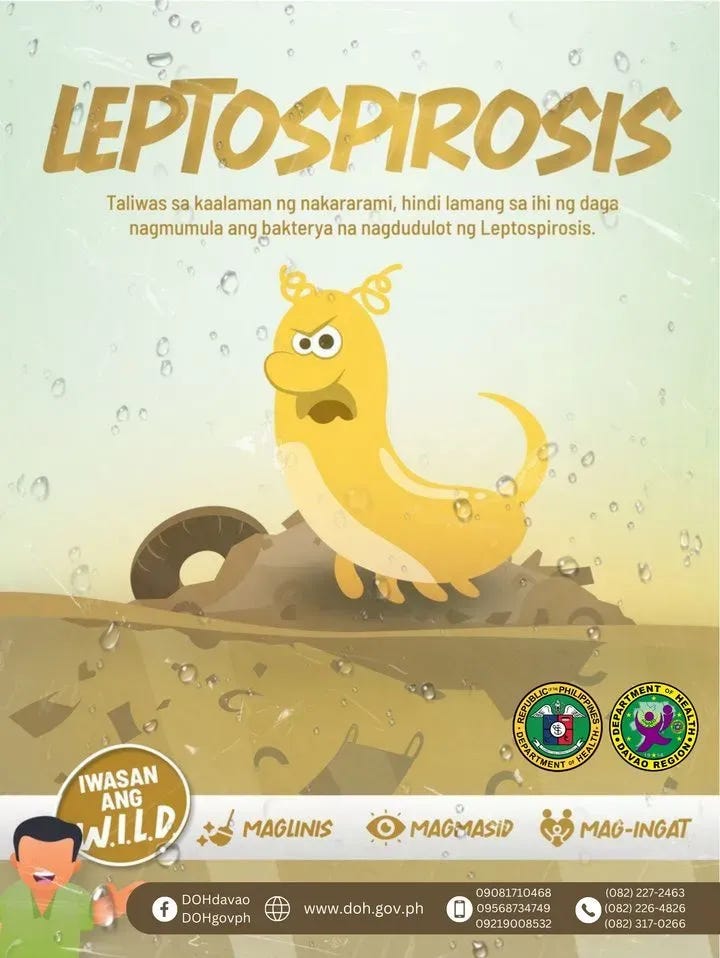Philippines health officials remind the public to stay alert against leptospirosis this rainy season by recognizing its symptoms early, practicing prevention, and taking pre- and post-exposure prophylaxis, when appropriate.
According to The Department of Health (DOH) Central Luzon Center for Health Development (CLCHD) Medical Director, Angelica Joy Diaz, leptospirosis, a bacterial infection commonly found in the urine of rats, is typically transmitted when flood water contaminated with animal urine enters the body through skin wounds or cracks, especially during the rainy season.
It generally takes 2-30 days to get sick after having contact with the bacteria that cause leptospirosis. The disease may occur in two phases:
In the first phase, people may have fever, chills, headache, muscle aches, vomiting, or diarrhea. The person may feel better for a while but become ill again.
Some people may suffer a more severe second phase with kidney or liver failure, or inflammation of the membrane around the brain and spinal cord (meningitis).
Leptospirosis outbreak in Manila 2018 with Ted Herbosa, MD
To prevent infection:
Don't swim or wade in water that might be contaminated with animal urine, especially after hurricanes, floods, or heavy rainfall.
Avoid contact with animals that may be infected.
Cover your cuts or scratches with waterproof bandages.
Wear waterproof protective clothing, shoes or boots near floodwater or other water or soil that may be contaminated with animal urine.
The Department of Health is also promoting the use of pre-exposure and post-exposure prophylaxis in managing leptospirosis.
Pre-exposure prophylaxis, commonly given to rescue workers, involves taking 200 mg of doxycycline once a week.
Philippines rainy season is here--with it comes dengue and other diseases
For children under 45 kilograms, the recommended dosage is 4 mg/kg once a week.
Post-exposure prophylaxis depends on the individual’s level of exposure.
“For low-risk cases, such as single exposure without wounds, two 100 mg capsules of doxycycline may be taken within 24 to 72 hours,” Diaz explained.
For moderate-risk cases involving open wounds or lesions, the advised dosage is two 100 mg capsules once daily for three to five days.
High-risk individuals with repeated exposure, with or without wounds, are advised to take the same dose once weekly until the end of exposure.
Diaz encouraged everyone to remain proactive and vigilant this rainy season.
“Let us work together to keep our surroundings clean, avoid flood water exposure, and seek treatment early to prevent severe illness,” Diaz said.





